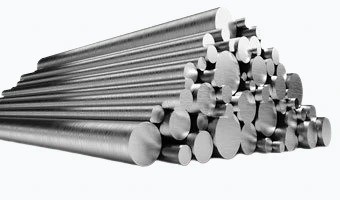Tel: 0129-4001010 Phone: +91 730 321 5033
Email: cs@absoluteveritas.com
BIS CERTIFICATION FOR TOOL AND DIE STEELS IS 3748:1990
In today's competitive landscape, maintaining market presence without a certified, high-quality product can be challenging. Obtaining a BIS license may also be essential for selling products in the Indian market. To achieve BIS certification and ensure product quality, manufacturers must adhere to the specified Indian standards.
Let's delve deeper into at IS 3748:1990 for tools and die steels.
This standard outlines the specifications for plain carbon and alloy tool and die steel, available in various forms such as bars, blanks, rings, and other shapes. These materials are capable of being hardened and tempered, suitable for use in both cold and hot working applications.
Steel governed by this standard must be ordered and supplied based on either (a) chemical composition or (b) chemical composition and annealed hardness. Unless specified otherwise in the order, the methods employed for manufacturing the steel and the final product are at the discretion of the manufacturer, provided that the steel is fully killed.
Each ingot must have sufficient reductions and discards to ensure that it is free of piping, harmful segregation, and other defects. The material must be roughly machined, chipped, or ground to remove any surface imperfections that may cause defects in the finished products. The material must be free of potentially harmful surface defects such as seams, laps, and cracks. The material must also be free of flaws. Surface decarburization must be completely avoided in all materials supplied in machined and ground conditions.
TESTS
The subsequent test must be conducted for Tool and Die Steels.
-
Chemical composition
-
Hardness
-
Dimensional tolerances
-
Ultrasonic test
-
Additional test
MARKING:
Each bar exceeding 50 mm in diameter or equivalent cross-sectional area must be stamped or appropriately marked at the end with the following details: manufacturer's source and cast number. Additionally, the Standard Mark may be applied to the material. Manufacturers are required to obtain a BIS license from the Bureau of Indian Standards to utilize the standard mark (ISI Mark). This license is granted following a comprehensive evaluation of manufacturing infrastructure, production processes, and quality control and testing capabilities during an inspection at the manufacturing premises by the Bureau.
PROCESS FOR BIS ISI MARK CERTIFICATION

BIS CERTIFICATION PROCESS
Acquiring a BIS license requires a comprehensive review of manufacturing infrastructure, quality control abilities, testing resources, and production procedures. This thorough assessment guarantees that products not only adhere to regulations but also prioritize consumer safety and reliability.
NOTE:
For comprehensive guidance on the BIS ISI Certification process, please explore:
WHY USE ABSOLUTE VERITAS?
Absolute Veritas is a prominent organisation from the private sector of India primarily dealing with the Inspection, Testing, Audits, Certification of products& consulting services to various industries in India and worldwide, ensuring compliance with regulatory standards and industry requirements. Offering a comprehensive range of services including product certification, testing, training, auditing, and compliance services, Absolute Veritas helps manufacturers and importers achieve higher production efficiency and quality standards.
Absolute Veritas (AV) will handle end to end pre-registration request, sample preparation, documentation, testing and application process for FMCS Certification
For any questions regarding the most recent update on FMCS registration licenses, please reach out to us via email at cs@absoluteveritas.com








 ❮
❮
